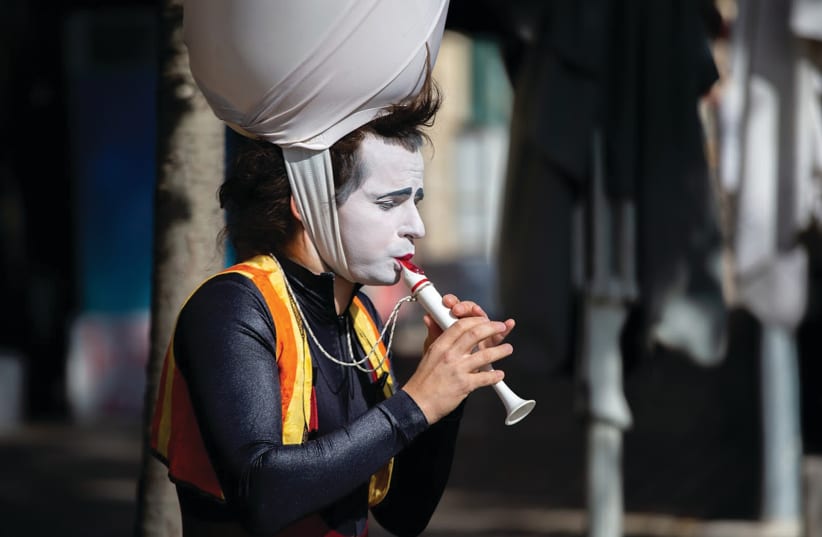As we celebrate Purim this year, it’s hard to escape the feeling of disappointment. This is the second Purim since the beginning of the pandemic, and the world remains upside-down. Our lives at the moment seem reduced, our Purim celebrations muted.
But maybe it’s the opposite. Maybe this is the year for a Purim like no other.
Think about what we are all grappling with at the moment: the pervading sense we have is of living in a world of uncertainty.
Purim is all about embracing uncertainty. In fact, the very word Purim means “lots,” referring to the lots Haman cast to randomly select the day to carry out his genocidal plan.
In a world so filled with threats and danger, Purim gives us a game plan. In fact, the four mitzvot of Purim constitute the perfect formula for coping with an uncertain world.
• First, the mitzvah to hear the reading of the Megillah in the night and again in the day of Purim teaches us about faith. The Megillah inspires us to see God’s presence everywhere, even when it is not obvious. The name Esther – the Megillah’s chief protagonist – comes from the word hester, meaning hidden – a hint to God’s hidden presence in the world (Talmud, Chullin 139b). Famously, the Megillah, which relates the miraculous story of how the Jewish people were saved from annihilation, does not mention God’s name once. Even when we cannot see Him, we are reminded that He is there, looking out for us every moment of every day.
He was in ancient Persia when Haman rose up against us, and He is here with us in the midst of the COVID-19 pandemic. We can take comfort in knowing we are in His loving embrace, and that everything He does is ultimately for our best.
• The next mitzvah of Purim – matanot l’evyonim (Esther 9:22), giving money to those in need on the day – reminds us of the power of giving. There are many people who have been hit financially by COVID-19. Our incredible institutions, too, are buckling under the strain. This year in particular, when so many of us are vulnerable, we need to reach out and give according to our means.
• Then there’s mishloach manot (Esther 9:22) – sending gifts of food to our friends and family on Purim. Now is the time to invest in our relationships. We need them more than ever. We need to lean on one another. Our relationships feed us, giving us the strength and emotional well-being to withstand these difficult times. At a time of isolation and dislocation, mishloach manot reminds us to fortify our connections to the people around us, as we draw strength from them and they draw strength from us.
• Finally, there is the seudat Purim, the celebratory meal on Purim day. The Purim seuda is a feast of gratitude and thanksgiving. We are grateful to God for our miraculous deliverance on Purim, and it reminds us to offer thanks to Him also for the daily miracles we all experience, to truly savor the Divine blessings we have in our lives, and to live with gratitude.
And so, as the world gradually moves to the next phase of this great global health struggle, let’s embrace Purim; not with big gatherings, but with immersive engagement in the four mitzvot of the day which, together, provide a game plan for living in a world of uncertainty, guiding us to the four things we need right now: faith, kindness, love and gratitude.
May we all merit the “light and joy and celebration and glory” (Esther 8:16) that the Megillah tells us filled their world after the miracles of Purim, and may these Divine blessings flow into our lives and into our world.
The writer is chief rabbi of South Africa.
